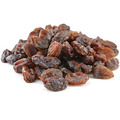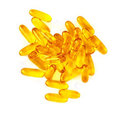-
Keep your vagina healthy - and happy
 vulva, vulvodynia, vulva itching, vaginal health, vulvar itching, itchy skin, itching skin, vulvodynia treatment, feminine itching, healthy vagina, bv, bv treatment, bv symptoms, what is bv, bv uk
Woman having a bath - Keep your vagina healthy - and happy - Diet & wellbeing - allaboutyou.com
vulva, vulvodynia, vulva itching, vaginal health, vulvar itching, itchy skin, itching skin, vulvodynia treatment, feminine itching, healthy vagina, bv, bv treatment, bv symptoms, what is bv, bv uk
Woman having a bath - Keep your vagina healthy - and happy - Diet & wellbeing - allaboutyou.com
Yes – you read that right. You can keep your vagina too clean…! Too much washing, especially with soap, can upset the pH balance of your vagina, with the net result that it can end up smelling more like fish than flowers, warns Dr Diana Mansour, a Consultant in Community Gynaecology and Reproductive Healthcare and Head of the Integrated Sexual Health Services for Newcastle upon Tyne. ‘This really unpleasant smell comes from a condition called bacterial vaginosis (BV for short). It’s caused by a reduction in acidity in the vagina – because the vagina likes to be populated with a type of bacteria that produces lactic acid, which keeps infections at bay. When lactic acid bacteria are reduced – by soaps, bubble baths etc - other types of bacteria can flourish and these can cause a nasty and embarrassing odour as well as an abnormal discharge and irritation.’
The best way to stay clean down there? Shower instead of bathing, and just swoosh water to clean your vulva (but never douche). Don’t wash too often either – once a day is enough. ‘Amazingly women who never deliberately clean their private parts do not produce odours, and also tend to be infection free,’ says Dr Mansour.
You might also like...
All about...vaginal dryness
Your very personal health...intimate issues
What's that smell? Embarassing body odours explained -
Keep your vagina healthy - and happy
 vulva, vulvodynia, vulva itching, vaginal health, vulvar itching, itchy skin, itching skin, vulvodynia treatment, feminine itching, healthy vagina, spermicide, spermicide lube, spermicide gels
Spermicide word cloud - Keep your vagina healthy - and happy - Diet & wellbeing - allaboutyou.com
vulva, vulvodynia, vulva itching, vaginal health, vulvar itching, itchy skin, itching skin, vulvodynia treatment, feminine itching, healthy vagina, spermicide, spermicide lube, spermicide gels
Spermicide word cloud - Keep your vagina healthy - and happy - Diet & wellbeing - allaboutyou.com
If you’re feeling sore and itchy and you’re also taking a belt and braces approach to your condom use, the two could be connected. ‘Research shows that spermicides make little or no difference to your risk of conceiving while using a condom, so it’s better to use one that is spermicide free,’ says Dr Mansour. With a 15% failure rate in preventing pregnancy, condoms should not really be taken seriously as a contraceptive. They are however vital to protect against sexually transmitted infections while using another contraceptive such as the Pill or the IUS.
‘If you’re feeling sore and itchy and want a soothing treatment, try a gentle emollient such as Hydromol or E45 which have been dermatologically tested,’ says Dr Mansour.
You might also like...
Time to change your contraception?
Your very personal health...intimate issues
Do you know your risk of sexually transmitted infection? -
Keep your vagina healthy - and happy
 vulva, vulvodynia, vulva itching, vaginal health, vulvar itching, itchy skin, itching skin, vulvodynia treatment, feminine itching, healthy vagina, panty liners, panty liner, what are panty liners for
Woman with panty liner in her pocket - Keep your vagina healthy - and happy - Diet & wellbeing - allaboutyou.com
vulva, vulvodynia, vulva itching, vaginal health, vulvar itching, itchy skin, itching skin, vulvodynia treatment, feminine itching, healthy vagina, panty liners, panty liner, what are panty liners for
Woman with panty liner in her pocket - Keep your vagina healthy - and happy - Diet & wellbeing - allaboutyou.com
It seems like the clean thing to do, second best to changing your pants several times a day. But the bleach and plastic backings of many panty liners are another cause of irritation, says Dr Mansour. ‘The skin of your vulva is delicate and can react quickly to bleach, which is a chemical. Being sweaty increases your risk of infection by providing just the kind of warm environment that bacteria (causing BV) and yeast (causing thrush) need to flourish. Your best bet: avoid tight-fitting jeans and wear cotton pants if you are prone to itching and soreness. A certain amount of vaginal discharge is normal, but anything that is thick, like cottage cheese, could be a sign of thrush, which is caused by the Candida albicans yeast getting out of control when the pH balance of your vagina is upset, or you have too little healthy probiotic bacteria in your gut.
You might also like...
Thrush: get the facts
Your very personal health...intimate issues
What's that smell? Embarassing body odours explained -
Keep your vagina healthy - and happy
 vulva, vulvodynia, vulva itching, vaginal health, vulvar itching, itchy skin, itching skin, vulvodynia treatment, feminine itching, healthy vagina, itchy vagina, itchy skin, causes of itching skin
Woman with manicured nails - Keep your vagina healthy - and happy - Diet & wellbeing - allaboutyou.com
vulva, vulvodynia, vulva itching, vaginal health, vulvar itching, itchy skin, itching skin, vulvodynia treatment, feminine itching, healthy vagina, itchy vagina, itchy skin, causes of itching skin
Woman with manicured nails - Keep your vagina healthy - and happy - Diet & wellbeing - allaboutyou.com
Long square shellacs are a girl’s worst friend when she is itchy down there, says Dr Mansour. ‘Once the itching has started, scratching will only make it worse, and will encourage eczema which can become infected with bacteria. Even if you try not to, you can itch and scratch in your sleep without knowing about it. Keeping fingernails short is the best way to stop yourself from scratching until you bleed. We also recommend sleeping in gloves to stop yourself from scratching, or taking an antihistamine - the same anti-allergy pill you'd take for hayfever. Some types (eg Piriton) encourage drowsiness (useful to take at night if your itching is keeping you awake) – but even if you choose the non-drowsy type (eg Loratadine) it will stop you from itching so much and this will give your skin a chance to heal.’
You might also like...
All about...vaginal dryness
Your very personal health...intimate issues
What female doctors want you to know about personal health -
Keep your vagina healthy - and happy
 vulva, vulvodynia, vulva itching, vaginal health, vulvar itching, itchy skin, itching skin, vulvodynia treatment, feminine itching, healthy vagina, brazilian wax, brazilian hot wax, waxing
Pots of hot wax - Keep your vagina healthy - and happy - Diet & wellbeing - allaboutyou.com
vulva, vulvodynia, vulva itching, vaginal health, vulvar itching, itchy skin, itching skin, vulvodynia treatment, feminine itching, healthy vagina, brazilian wax, brazilian hot wax, waxing
Pots of hot wax - Keep your vagina healthy - and happy - Diet & wellbeing - allaboutyou.com
It’s another myth that keeping your vulva hai- free is more hygienic. It’s not. Hair grows on your pubic area for a purpose, and that purpose is to protect your skin during sex. ‘Not only do you risk getting itchy and sore from friction during sex if there’s no hair to buffer the area, but you’re also at increased risk of folliculitis – where a hair follicle becomes infected and inflamed (it can cause a pimple or a boil, or a rash of red or white bumps),’ warns Dr Mansour. ‘Waxing is a safer bet than shaving – but it’s better to be old fashioned and keep some hair, even if you have a good bikini-line tidy-up. If you are hellbent on shaving the area, and get sore as a result, soothe your skin with one of the emollients already mentioned and avoid anything perfumed which could make the problem worse.’
Beware of white spots on the inner lips of your vulva. These can be a sign of lichen sclerosus, which needs medical treatment. If in doubt about the appearance of your vulva, or to find out whether your “symptom” is actually something quite normal, take a photo of the area and send it to LloydsPharmacy’s GP Photo Assessment Service.
You might also like...
All about...vaginal dryness
Your very personal health...intimate issues
What female doctors want you to know about personal health -
Keep your vagina healthy - and happy
 vulva, vulvodynia, vulva itching, vaginal health, vulvar itching, itchy skin, itching skin, vulvodynia treatment, feminine itching, healthy vagina, biological washing powder, biological detergent
Knickers hanging on washing line - Keep your vagina healthy - and happy - Diet & wellbeing - allaboutyou.com
vulva, vulvodynia, vulva itching, vaginal health, vulvar itching, itchy skin, itching skin, vulvodynia treatment, feminine itching, healthy vagina, biological washing powder, biological detergent
Knickers hanging on washing line - Keep your vagina healthy - and happy - Diet & wellbeing - allaboutyou.com
Who doesn’t want a whiter-than-white wash? ‘Just don’t get carried away,’ says Dr Mansour. ‘Biological detergents and perfumed fabric conditioners can cause irritation if you’re susceptible – and your pants will be just as clean if you wash them in a non-bio product. When you’re suffering with soreness down there it really is worth turning detective to suss out any possible culprit that you can change – and your laundry habits are an obvious place to start. Detergents are often responsible for contact dermatitis, which can affect any part of the body but vulval skin is obviously particularly delicate and vulnerable.’
Tip: Try a very gentle powder such as Filetti.
You might also like...
All about...vaginal dryness
Your very personal health...intimate issues
What's that smell? Embarassing body odours explained -
Keep your vagina healthy - and happy
 vulva, vulvodynia, vulva itching, vaginal health, vulvar itching, itchy skin, itching skin, vulvodynia treatment, feminine itching, healthy vagina, vulvodynia treatment, vulvodynia symptoms
Woman washing her hair in the bath - Keep your vagina healthy - and happy - Diet & wellbeing - allaboutyou.com
vulva, vulvodynia, vulva itching, vaginal health, vulvar itching, itchy skin, itching skin, vulvodynia treatment, feminine itching, healthy vagina, vulvodynia treatment, vulvodynia symptoms
Woman washing her hair in the bath - Keep your vagina healthy - and happy - Diet & wellbeing - allaboutyou.com
Another cleanliness habit too far… by washing your hair in the bath, you subject your poor vagina to a cascade of chemicals and detergents that risk upsetting the delicate balance of your pH and also irritate sensitive skin. ‘Stick to washing your hair over a basin, or in the shower,’ says Dr Mansour.
If you know you’ve taken every step to avoid irritating your vulva, but you still suffer with burning and soreness, there’s a possibility you could have a condition known as vulvodynia, caused by hypersensitivity of the nerve fibres in the vulval skin. If you examine the area with a mirror you may be surprised to see that it doesn’t look as sore as it feels – in fact your doctor may also be unable to see anything when she examines you, because the problem lies with the nerve fibres themselves which are not visible to the skin. Because of this nerve fibre involvement, your doctor may recommend treatment with tricyclic antidepressants because these alter the way in which the nerve fibres transmit the sensation of pain. Oatmeal (Aveeno) baths can also be very soothing. For more information go to www.vulvalpainsociety.org.
You might also like...
All about...vaginal dryness
Your very personal health...intimate issues
What's that smell? Embarassing body odours explained
Keep your vagina healthy - and happy
Fairy, fou-fou, fanny... we're familiar with all sorts of names for our most intimate area, but do we know how to look after it? By Karen Evennett
Post your comment
Join us here...
Community
Forums
View all forums
Blogs
View all blogs-
 The five best things I tried this month
The five best things I tried this monthPosted by 11280Adrienne Wyper
-
 Learning Italian - è fantastico!
Learning Italian - è fantastico!Posted by 11320Carol Muskoron







